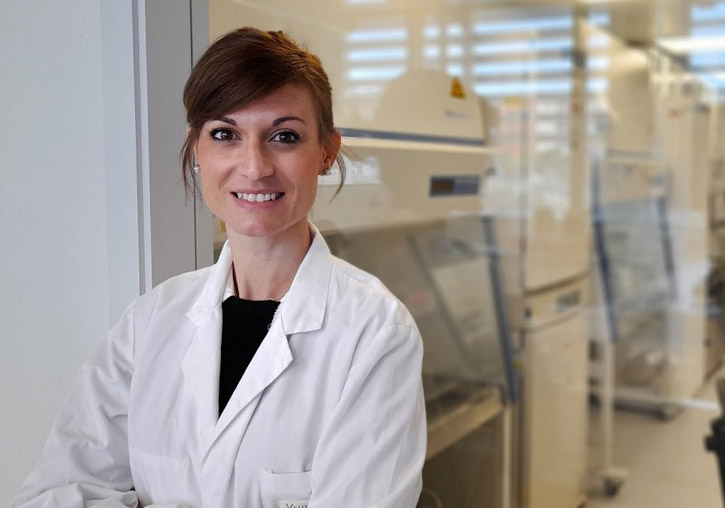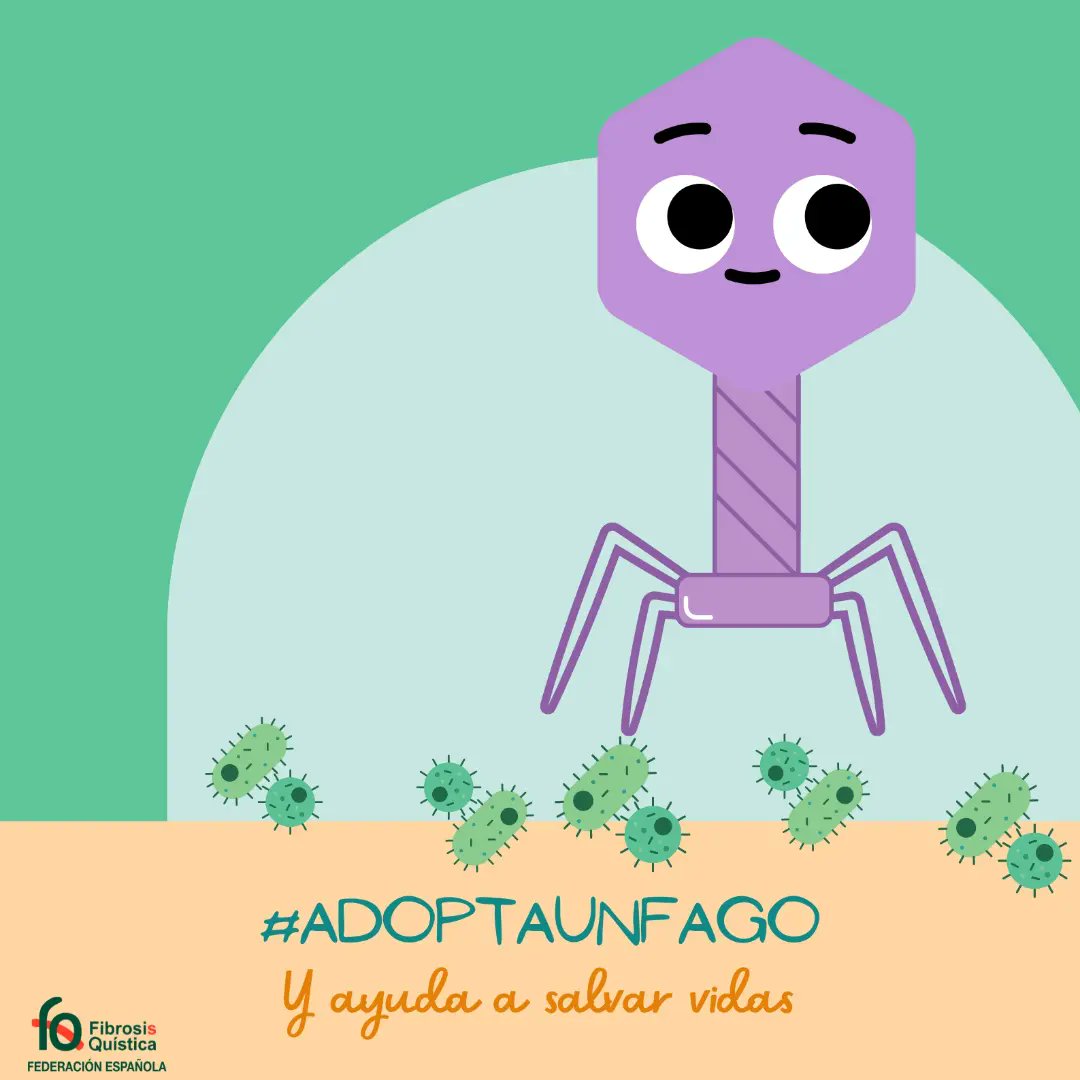Started a crowdfunding to research antimicrobial therapies based on bacteria viruses in people with Cystic Fibrosis
- Scientific Culture and Innovation Unit
- October 25th, 2022

Pilar Domingo, a researcher at the Institute of Integrative Systems Biology (I2SysBio), a joint centre of the University of Valencia and the Spanish National Research Council (CSIC), has launched the crowdfunding campaign “Adopta un Fago” (‘Adopt a phage’), hand in hand with the Spanish Federation of Cystic Fibrosis, to obtain funding to study new antimicrobial therapies. The study focuses on phage therapy, a practice that tries to alleviate diseases caused by multiresistant bacteria through the use of phages, viruses that exclusively affect the bacteria of interest.
With the @AdoptaUnFago campaign, anyone can make a donation at www.fibrosisquistica.org and send their own drawing of a phage to adoptunfago@gmail.com to share it on social networks. Each donor will also receive one of these drawings along with a donation certificate.
Another initiative that has been launched to raise funds is a benefit concert called FAGOFEST. This will take place at La Casa de la Mar of València on December 2. It starts at 5:00 p.m. and has the live presence of the bands Paranoia, F-six and Nudo Windsor, as well as a session by DJ Navas.
Bacteriophages, better known as phages, are viruses that coexist with bacteria from the beginning in a parasite-host relationship. Thanks to their specificity, they have enormous potential as a therapy in biomedicine, although it is still under study due to the scarcity of adequate clinical trials and the lack of regulation by the competent authorities.
People with cystic fibrosis are especially vulnerable to infections with resistant bacteria. That is why, from the Spanish Federation of Cystic Fibrosis, research is being supported for new therapies against resistant bacteria. This campaign, supported by social networks @AdoptaUnFago, aims to implement a personalised medicine platform based on phages against bacteria. It should be noted that, despite being launched by the Spanish Cystic Fibrosis Federation, there is a global problem that requires short-term solutions and that could affect anyone.
Phages were discovered more than 100 years ago and since then they have been used as therapeutic tools in Eastern countries. However, in most European countries and in America, phages were abandoned after the discovery of broad-spectrum antibiotics. Currently, due to the emergence of bacteria resistant to antibiotics, phages are postulated as a powerful therapy, although in the West there is still no specific regulatory framework and their use is focused on compassionate therapy.
Therefore, compassionate use in patients is having very promising results, mainly in people with Cystic Fibrosis. Pilar Domingo assures that phages “are capable of specifically recognising target bacteria and are capable of destroying them very efficiently, including multi-resistant bacteria. In this sense, the therapeutic use of phages has a lot of potential, but due to the high specificity, we are talking about personalised medicine”.
Pilar Domingo has a doctorate in Biology from the University of Valencia. She has recently been the beneficiary of a Ramón y Cajal contract in Biomedicine, where she develops her line of research in phage therapy in the fight against multi-resistant bacteria. She is also the main researcher of the Environmental and Biomedical Virology group at the University of Valencia.
File in: Recerca, innovació i transferència , Col·laboració amb empresa , Institut de Biologia Integrativa de Sistemes (I2SYSBIO) , Difusió i comunicació científica , Producció científica , Internacionalització recerca , Finançament recerca , Investigació a la UV



















